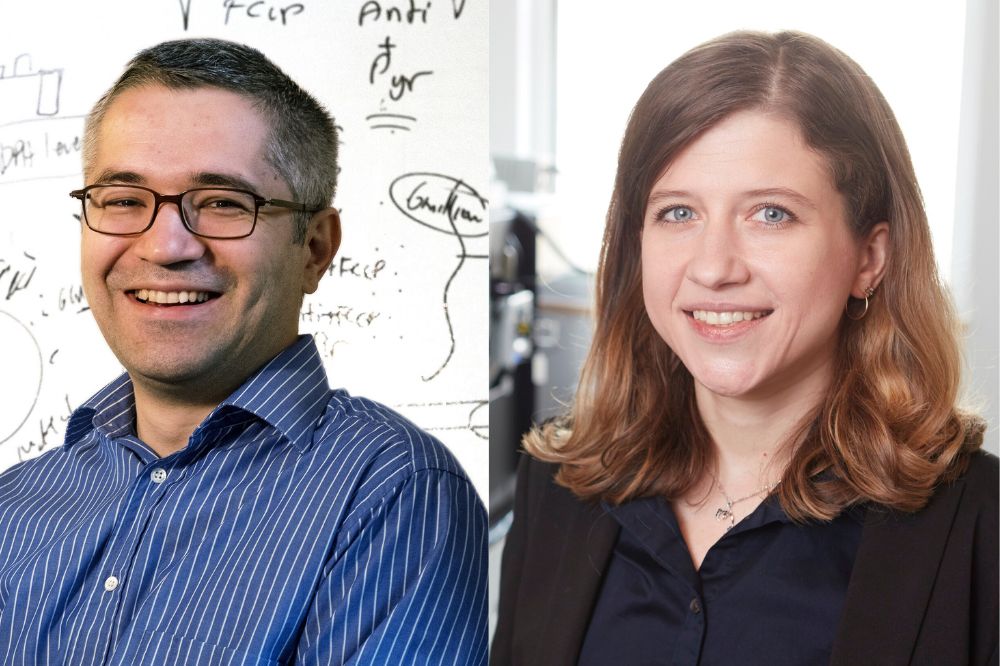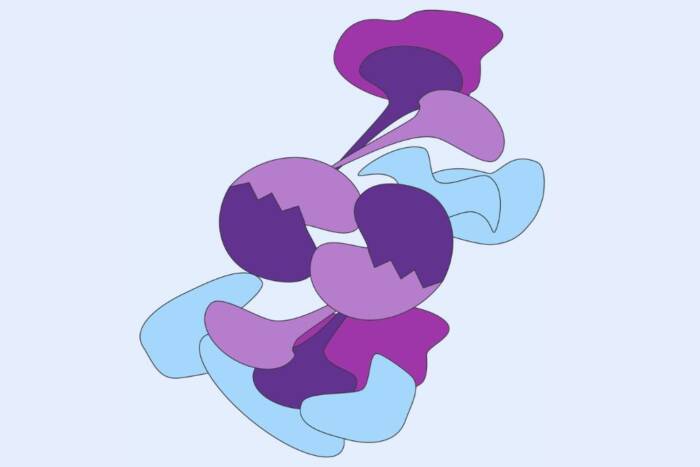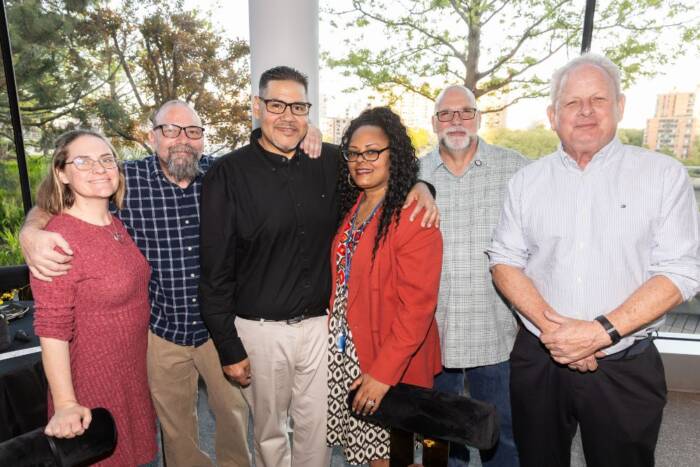Two Rockefeller researchers chosen for the Chan Zuckerberg Biohub New York Investigator Program
 Two Rockefeller researchers have been selected for the newest cohort of nine scientists in the Investigator Program at Chan Zuckerberg Biohub New York (CZ Biohub NY). The program provides unrestricted funding for three years to pursue innovative and high-impact research projects, as well as access to cutting-edge tools, training opportunities, and a collaborative research community.
Two Rockefeller researchers have been selected for the newest cohort of nine scientists in the Investigator Program at Chan Zuckerberg Biohub New York (CZ Biohub NY). The program provides unrestricted funding for three years to pursue innovative and high-impact research projects, as well as access to cutting-edge tools, training opportunities, and a collaborative research community.
Rockefeller’s Kivanç Birsoy and Ekaterina Vinogradova join seven scientists from Yale University and Columbia University heading research projects that embody CZ Biohub NY’s mission to harness and bioengineer immune cells for the early detection, prevention, and treatment of a broad spectrum of age-related diseases, including neurodegenerative disorders and aggressive cancers.
The funded projects support a variety of innovative strategies, including leveraging synthetic biology to address the limitations of current immune cell therapies and using models to enable insights into cellular networks and tissue adaptations in health and disease. More information about all nine new investigators can be found at the Investigator Program(opens in new window) at CZ Biohub New York.
Vinogradova will seek targets and ligands for the detection and modulation of T cell states, while Birsoy will investigate immune cell lipids and secretory functions with an eye on early disease detection and intervention.
“We are excited to welcome these new investigators to our collaborative community of researchers,” says Andrea Califano, Dr. Clyde and Helen Wu Professor of Chemical and Systems Biology at Columbia University Vagelos College of Physicians and Surgeons and president of CZ Biohub NY. “They are joining us as we pursue a complex challenge to harness the natural capabilities of our immune cells to detect and fix abnormalities in our bodies at very early stages.”
Modulating T cell responses
Immune cells are well positioned to pick up the earliest signs of disease, as they constantly monitor and maintain the health of organs and tissues while circulating through the blood and lymphatic systems. And yet many diseases evade detection until symptoms appear. Deciphering the molecular language immune cells use to report problems they’ve identified could enable researchers to program new functions into the cells, such as repairing damaged cells or eliminating diseased ones.
Such is the collective goal of the current CZ Biohub NY initiative. For example, Vinogradova, who leads the Laboratory of Chemical Immunology and Proteomics(opens in new window), is pursuing innovative strategies for studying immune cell states that may uncover novel therapeutic avenues for diseases like cancer and neurodegeneration.
“Immune cells rapidly respond to their environment, recording signals through molecular changes that can serve as biomarkers for function and disease states. But while transcriptional and epigenetic changes have been extensively studied, functional proteomic alterations occur on much shorter timescales and remain less explored—even though they represent the most tractable starting points for chemical probe development and drug discovery efforts,” she says. “That’s why we aim to leverage multiplexed chemical proteomic profiling platforms and gene editing workflows to define functionally relevant cysteine targets in T cells and develop selective covalent ligands capable of monitoring and modulating T cell responses in cancer.”
High-resolution maps
In the Laboratory of Metabolic Regulation and Genetics(opens in new window) at Rockefeller, Birsoy combines cutting-edge metabolomics, organelle biology, and immune engineering, opening up new avenues for reprogramming immune responses at early stages of cancer and potentially other diseases like neurodegeneration.
“Our prior discoveries show that cancer cells exploit lipid metabolism to evade immune surveillance, so our project will uncover how immune cells detect and respond to early pathological signals,” says Birsoy. “We’ll map their lipid composition and secreted proteins at subcellular resolution using a method we developed called rapid ER immunopurification technology (ER-IP). This will allow us to define how immune cell metabolism adapts in the tumor microenvironment—and how it might be reprogrammed to boost anti-tumor immunity. We hope these insights can be used to engineer immune cells for early disease detection and intervention, particularly in pancreatic cancer.”
A continent-spanning network
CZ Biohub NY launched in 2023 as the fourth member of the Chan Zuckerberg Biohub Network, a group of nonprofit research institutes that bring together scientists, engineers, and physicians with the goal of pursuing grand scientific challenges on 10- to 15-year time horizons.
This is the second round of Investigator Program grants given to researchers in New York City. One of the first-round recipients was Sohail Tavazoie, the Leon Hess Professor at The Rockefeller University and a member of the CZ Biohub NY steering committee.
Tavazoie says, “We are thrilled to have these outstanding scientists with diverse scientific expertise join us to tackle these exciting, fundamental, and biomedically important challenges.”


